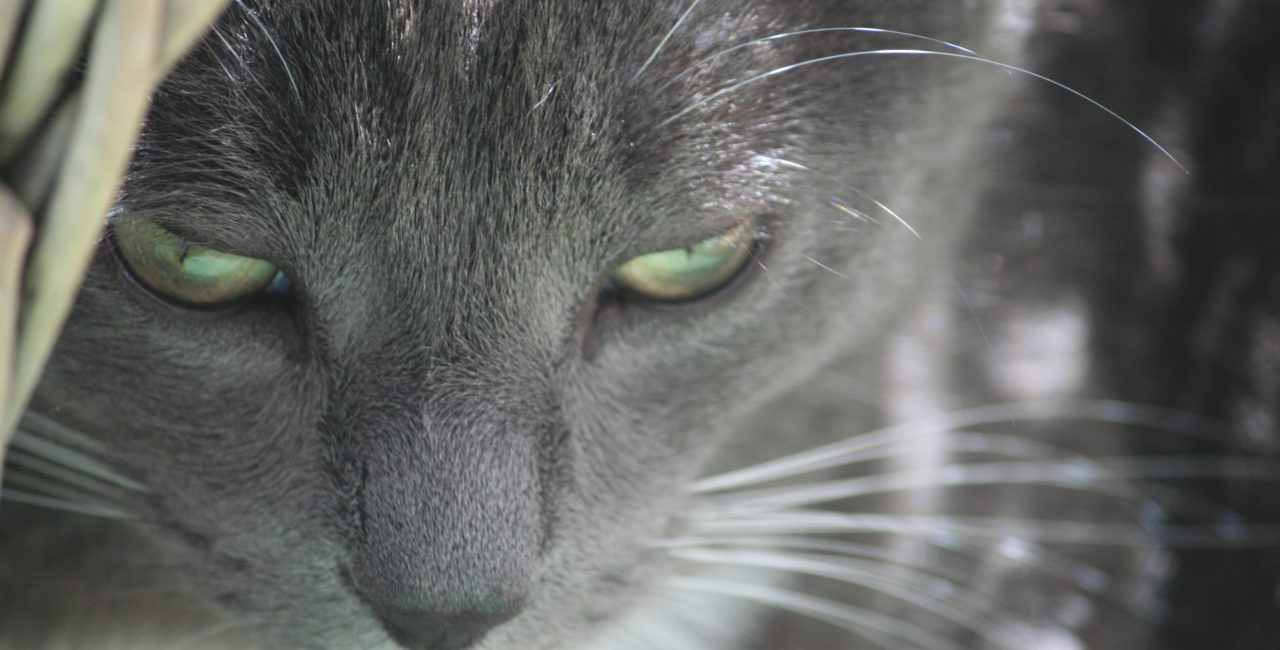The anxiety and fear associated with stress affects your cat similar to the way it affects us, though cats tend to hide it very well. Even worse, chronic stress can cause a wide range of illnesses.
Here are some common signs of stress in cats to help you identify the issue and seek medical attention from your veterinarian.
If you see your cat Urinating Outside the Litter Box, having Decreased Appetite, wants to be by him/herself (Isolation), is Excessive Grooming, shows Aggression Toward People or Other Animals than it may be time to contact your veterinarian.
Your initial reaction to your pet urinating outside the litter box may be to yell and scream. Please Don’t! Cats that urinate outside the litter box are trying to let us know something is wrong. He or she may be stressed due to rearranged furniture, loud noises, an unclean litter box, or several other factors. Your cat may also have an underlying health issue causing the inappropriate urination. Consult your veterinarian.
Cats don’t go on fasts or diets like we do so it’s important to consult a veterinarian if your pet suddenly loses interest in food or stops eating altogether. It could be due to stress or to an underlying health condition.
Cats are often mischaracterized as animals that avoid interaction with other pets and people. This just isn’t the case for most cats. When in fact, constant isolation may be a common sign of stress or pain.
There’s a difference between fastidious grooming and licking a spot raw or bald. The latter is a clear sign of distress, and one that warrants a visit to your veterinarian.
Aggressive actions toward animals or people can be a sign of a stressed or an underlying heath concern. Please consult your veterinarian before the problems persists or get worse.
How to Help a Stressed Out Cat?
If your cat’s behavior changes suddenly in any way, please call to schedule an appointment with us for a complete physical examination. Our Veterinarians can rule out any underlying medical issues as well as make recommendations to help lower your cat’s stress level. Here are some tips for helping to alleviate stress in your cat:
- Play/exercise with your cat regularly – Physical activities are a great stress reducer for cats.
- Create a safe zone – Make sure they have a secret hiding spot in your home so that they can escape high-stress events like thunderstorms and lound noises. If they are in a multi-cat household, seperation then with a solid barrier can be useful so they can’t see wach other, especially when one cat tends to bully or aggravate the other.
- Choose a high quality cat food – Your cat’s diet is an integral part of his health and wellbeing. Providing your cat with a diet that is not properly balanced for his or her life stage and lifestyle may cause unforeseen repercussions that may lead to anxiety and stress. We have several diets in our hospital and if you have any questions please give us a call at Pet Focus Bedford South.



